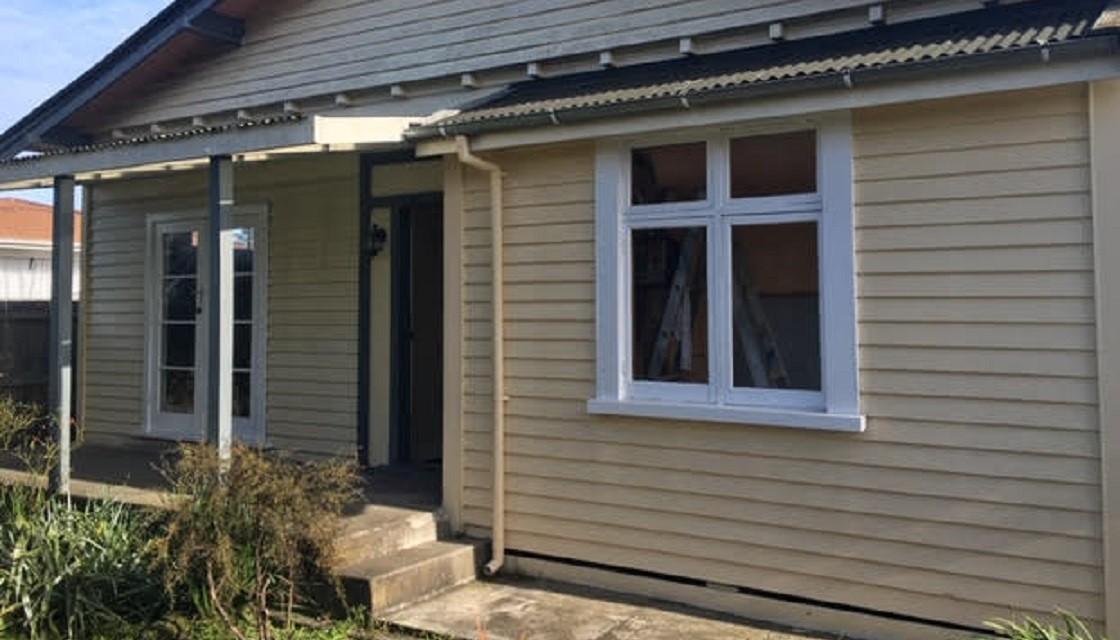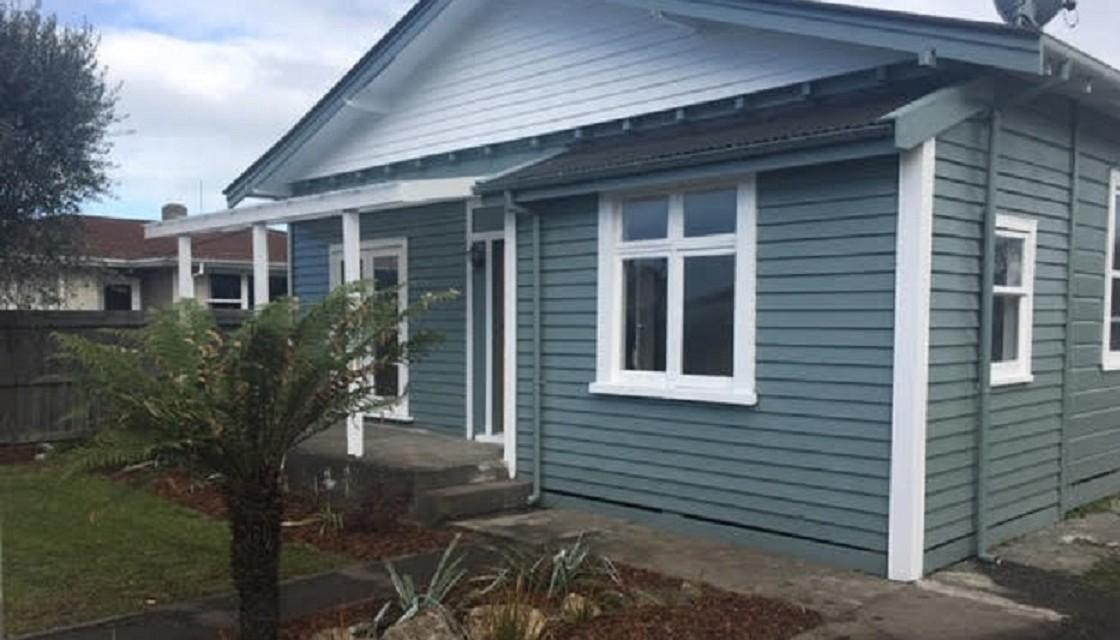
Most people have heard the fairytale story of picking up a property for well-under market value, giving it a lick of paint and re-selling it for thousands more. But is that realistic?
Although profits from property can be high, given there's no guarantee on what values will do in the short-term, holding costs can quickly erode any potential gain.
Newshub spoke to Graeme Fowler, an experienced property investor whose love of property has generated him a multi-million dollar business.
- Latest REINZ figures indicate glimmer of hope for Auckland property values
- Why Millwater could be the key to finding that elusive four-bedroom home
- Why first-home buyers are flocking to this growing Northland hub
Fowler estimates he's completed over 250 trades and renovations - averaging at around 15 properties a year, with 24 properties bought and sold during 2017.
As a professional property trader, Fowler is liable for tax and GST, accounting for around 38 to 40 percent of his profits.
To help novice investors get started, Fowler shares his knowledge of what a good 'yield' is and when it applies, where to look for properties and the risk of taking on structural renovations as opposed to cosmetic changes when selling on.
What percentage 'yield' to look for
For 'buy and hold' properties, the amount of annual income (rent) relative to the purchase price is called the 'yield'.
As buying a property to rent it out provides the opportunity to build a passive income (and ride off the coattails of any future capital gain), a yield of 7 percent or more is a good target - and harder to find than it used to be.
"Yields have dropped a lot in the last few years, but so have interest rates, so it balances out to some degree.
"Although difficult now, I've never bought a rental with a yield of less than 8 percent," Fowler said.
Fowler said that a 7 percent yield is now more realistic and given the current low interest rates, the numbers on that can work.
"Many investors buy properties with a yield of 5 percent or less and struggle with the lack of cash flow," Fowler added.
While many investors finance their properties on interest-only, as nothing is paid off, investors hedge their bets on the value going up - something Fowler doesn't rely on.
"Whenever I bought rentals in the past, I always assumed prices would stay the same or go down.
"[As] all of [my] loans are on principal and interest, what the prices do after that doesn't matter," Fowler added.


Where to look
Where supply struggles to keep up with demand, high competition means property deals are more scarce - although some demand is necessary to attract tenants or sell on.
"I find that locations that have at least 100,000 people in them are best.
"Buy in a reasonable street - not where the most expensive homes are and also [stay away] from the cheapest homes in the worst streets," Fowler advised.
Although demand from renters and buyers is strong in Auckland, Fowler said that for him, the area isn't the pick of the bunch.
"The yields are generally far too low in Auckland for me to make it work - and have been for some time."
Although some companies provide mentoring services and source properties on behalf of investors, the upfront fee can eat into profits.
"We find all our properties ourselves, with around 60 percent through real estate agents and the rest privately, through avenues such as Trade Me," Fowler said.
Buy and hold or quick flick?
Buying a property to rent it out - and build a passive income stream - requires a different strategy to buying to resell at a profit.
A 'buy and hold' approach would require looking at rental income compared to purchase price, whereas buying to resell requires the buyer to negotiate well on the purchase price and understand local selling prices.
"Buy and holds are very simple compared to trading or doing renovations," Fowler said.
"A novice would be best to learn as much as they can from someone experienced in renovations, as there are so many pitfalls with trading."
The single winning factor in property investment is negotiating the purchase price, requiring buyers to do the hard yards and conduct their own research in the area they're buying.
"Unless you're experienced with market knowledge and prices, you'll most likely pay too much," Fowler said.
For investors looking to renovate and sell-on for a profit, pre-calculation of costs and reigning in spending on renovations is absolutely key.
"People often spend far too much on doing properties up and [given] the holding costs, they [can] lose money," Fowler said.
As property trading is risky, in a flat or declining market, novice investors are well-advised to look at a rental property before venturing into trades, sticking to cosmetic changes to start with.
"As much as possible, we avoid doing any work that needs council approval, like adding rooms, as it takes a long time.
"A couple of years' ago, we [completed a structural renovation] in Wellington, which was two flats on one title, in which we renovated both flats, converted them to separate titles and sold them individually.
"[While] we made a reasonable profit of $70,000, [the project] took just over 12 months from start to finish," Fowler said.
"Each property is different - some require a large renovation to get them into saleable condition and others just require cosmetic changes like paint and carpet - some even less than that," he added.
While property investment remains alive and well in New Zealand, as with any other profession, becoming good at it takes hard work.
By sticking to the basics of yield, strong population and streets of reasonable quality, while keeping holding costs under close reign for resale, novice investors can minimise risk and cost, while having the opportunity to make solid gains in the future.
Newshub.
